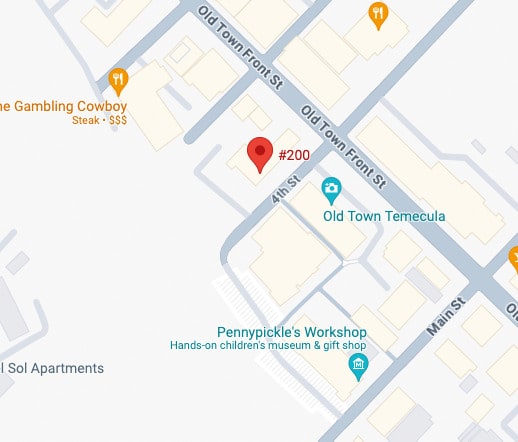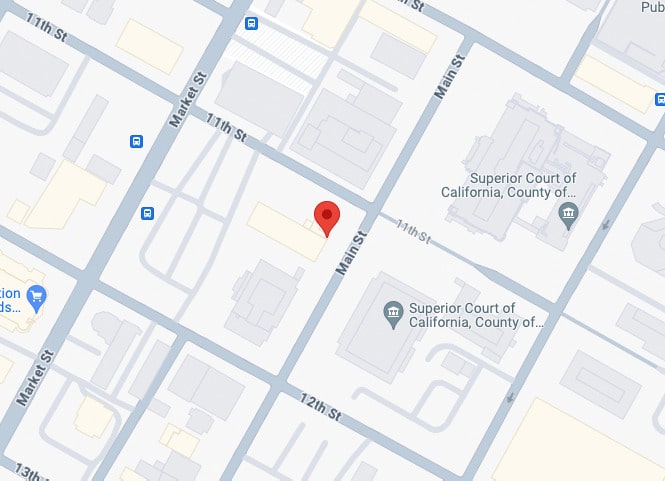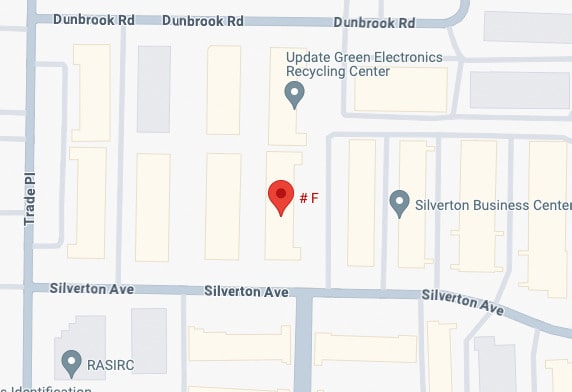If you use force or violence to take a vehicle from another person against their will, you will be arrested and charged with carjacking. In this case, using force or violence means inflicting an injury on someone else or threatening to harm them. You could be charged with carjacking if the victim of your crime is a passenger or driver of a vehicle. The issue of vehicle ownership will not play a role in your arrest and conviction.
The consequences of a conviction for carjacking go beyond prison time and fines. The felony conviction will remain on your criminal record and can affect your personal and professional life. However, before you are found guilty under this statute, the prosecution must prove all the elements of the crime and present sufficient evidence to support the case.
If you or your loved one faces criminal charges for carjacking, you must employ a solid defense to avoid the harsh consequences of a conviction.
Understanding The Crime of Carjacking in California
California Penal Code 215 defines carjacking as forcefully taking another person’s vehicle in their immediate presence. Although any vehicle theft can have devastating consequences, the stakes are especially high when you take a vehicle directly from another person. Before you face a conviction for carjacking, the prosecuting attorney must establish the following elements of the crime:
You took a Vehicle from Another Person’s Immediate Presence.
What differentiates carjacking from normal car theft is the presence of a victim when you take the vehicle. When we envision carjacking, we see a person holding a knife or a gun and forcing a driver out of a vehicle before driving off. However, you can be charged with carjacking even when you take the vehicle away from a passenger. Being in immediate presence means the car was within reach of the alleged victim.
You Acted Against the Victim Will
Taking a vehicle from another person means that you possess it and move it a distance away from the owner. If you do not move the vehicle away, you can still be charged with attempted carjacking. You take a vehicle from another person against their will if they do not consent to your act. Using force or coercion to make the person consent to your acts will still qualify as carjacking.
You Used Force or Fear
Under California PC 215, you use force against another person by inflicting physical violence on them. Use of fear, on the other hand, may include threats sufficient to cause a victim to comply with your unlawful demands. The nature of the victim’s attempts at resistance will not negate the claims that you used force or fear.
Sentencing and Punishment for Carjacking in California
In California, carjacking is charged as a felony. A conviction for this crime attracts the following legal penalties:
-
A prison sentence of three, five, or nine years
-
Fines that do not Exceed $10,000
-
Felony probation.
You must understand that these penalties apply to each person who was in the vehicle at the time of the crime. In the California justice system, the court imposes probation as an alternative to spending time in jail or prison. Often, probation is available for felony and misdemeanor convictions. When the court imposes probation after your carjacking conviction, you will serve part of your prison sentence on formal probation.
Although probation is a great way to avoid incarceration, the court is selective when awarding this sentence. A criminal defense attorney must negotiate with the prosecution for a chance at this lenient sentence. Prosecutors will be reluctant to support a probation sentence for repeat offenders or defendants with a substantial criminal record.
Formal probation will last three to five years, and the following conditions are attached:
-
Regular meetings with your probation officer. Meeting with a probation officer allows you to report your progress.
-
Avoid criminal acts during probation
-
Pay all court fines
-
Mandatory counseling
-
Perform community service
Failure to follow these conditions can result in an arrest for probation violation. At the probation violation hearing, the probation officer or district attorney will provide evidence of your violations, and you can suffer a probation revocation. This could prompt the court to take you back to prison to serve your original sentence or the maximum allowed sentence for carjacking.
Immigration Consequences of Carjacking
California law is strict on individuals who commit violent crimes. If you are an immigrant facing charges for carjacking, you could be deported or rendered inadmissible. This could significantly impact your family's life and livelihood.
Loss of Gun Rights
Most California residents have the right to purchase and legally own a firearm. If you are convicted of carjacking, the court will strip you of your rights to own, purchase, or possess a firearm. Whether or not you used a firearm in committing your crime is not a factor in losing your gun rights.
Sentencing Enhancements under California Penal Code 215
A sentencing enhancement is a factor in your case that increases the seriousness of the penalties you will face after your conviction. Standard penalty enhancements for carjacking in California include the following:
California Three Strikes Law
The Three Strikes Law is a sentencing scheme that imposes a prison sentence of twenty-five years to life for defendants who repeatedly commit violent felonies. Since carjacking involves force and violence, a conviction for the offense counts as a strike under this scheme. If your violation of PC 215 is your first felony, you will have one strike on your record. This means that a conviction for a subsequent felony will attract a harsher penalty.
If you already have a strike on your record and you are found guilty of carjacking, you will face a penalty that is two times what you would have received under PC 215. For example, carjacking is punishable by three, five, or nine years in prison. If the court imposes a nine-year sentence for carjacking and you are a "second striker," you will spend up to eighteen years behind bars. For third-time offenders, the possible penalty for your carjacking conviction is twenty-five years to life imprisonment.
Gang Enhancement
Under California Penal Code 186.22, it is a crime to participate in a gang to further a felony or commit a crime to benefit a street gang. If you engage in carjacking as part of a street gang’s activities, you will face additional penalties under the gang enhancement sentencing guidelines. Before applying the gang enhancement to your case, the prosecution must prove that:
-
You violated PC 215 to benefit the gang or at the direction of a gang
-
You committed carjacking to promote gang-related conduct.
Gang enhancement attracts a three-year prison sentence. However, the prosecutor must convict you of the underlying carjacking crime. Therefore, fighting to avoid a conviction under PC 215 will help you avoid gang sentence enhancement.
Use of a Firearm for Carjacking
Under California Penal Code 12022.5, you will face an additional sentence of up to ten years for using a firearm to commit a felony. You will face an enhancement under this statute if you use a firearm or an assault weapon in the commission of the crime. Under PC 12022.5(a), the person's firearm use means you brandish the weapon, fire a gun, or use it to assault a victim.
It is not uncommon for people to use guns and other firearms to commit carjacking. If there is evidence to prove that you used a firearm, you face an additional sentence of three, four, or ten years, depending on the circumstances of your case. The additional sentence under this scheme is consecutive to the sentence you receive for carjacking.
Felony Murder Rule
The felony murder rule will apply in your case if you accidentally or intentionally cause the death of another person during a carjacking. Under Senate Bill 1437, you will be liable under the felony murder rule if you participate in a carjacking with the intent to kill.
Intending to kill means your actions were deliberate, or you had a malice afterthought. A penalty enhancement under the felony murder rule could see you spend the rest of your life in prison for carjacking.
Causing Great Bodily Injury to a Victim During Carjacking
You will face sentencing enhancement under PC 12022.7 if you cause substantial injury to another person while committing a carjacking in California. Great bodily injury is greater than moderate or minor harm. Although GBI causes traumatic injuries, evidence of a permanent injury is not necessary for the application of this sentencing enhancement.
Another factor that must be made clear during the introduction of PC 12022.7 in your case is that you personally injured the victim. Whether or not you will face a penalty enhancement is determined by the court after assessing the following factors in your case:
-
The seriousness of the victim’s injuries
-
The harm or pain resulting from the injuries you caused
-
Whether or not their injury requires immediate medical attention
If you caused GBI to be the victim of your carjacking, you will face an additional sentence of three to six years in prison.
Federal Carjacking Laws
It is no secret that stealing a car will attract an arrest and charges under California law. However, carjacking attracts state and federal charges. You will face a harsher sentence when you face carjacking charges in federal court under 18 U.S.C. 2119. You violate federal carjacking laws when you unlawfully take a vehicle from another person during shipping.
You can be charged with federal carjacking even when your attempts to use force or take the vehicle are unsuccessful. Prosecutors in federal court are aggressive in investigating and prosecuting carjacking charges. In most cases, you will only be arrested if the prosecution is sure that the evidence they have will result in a conviction.
The penalties you face after a conviction under 18U.S.C 2119 include the following:
-
Up to fifteen years in prison if no injuries resulted from the carjacking
-
Up to twenty-five years in prison if you caused significant bodily injury to a victim during carjacking
-
A life imprisonment when a carjacking results in the death of one or more individuals
You must understand that defendants charged in federal court must serve their full sentence. This means that there is no possibility of parole. If you cannot fight to avoid your federal carjacking charge, you can negotiate to have it tried in state court, where the penalties are less harsh. You can do this by arguing that the vehicle did not travel across state borders.
Defenses Against Carjacking Charges in California
The penalties you face for carjacking are serious and sometimes life-changing. If the court applies sentencing enhancements like the three strikes law and the felony murder rule, you risk spending the rest of your life behind bars. Even when you are released from prison, having the conviction on your record can ruin your life. Therefore, you must apply the best defense possible to secure a favorable outcome in the case. Common defenses against PC 215 charges include:
You Did Not Use Force or Fear
The use of fear or force is a critical element that the prosecution must establish before your conviction for carjacking. If the prosecution is unable to provide sufficient evidence proving your use of force against the vehicle occupant, you cannot be found guilty of carjacking. However, if you admit to taking the vehicle against the victim's will or there is evidence to support the theory, you can be convicted and punished for a lesser offense.
The Vehicle Owner Consented
A carjacking case is built on you taking a vehicle from another person without their permission. If the vehicle owner or person in the vehicle gave you permission to take it, you could not be convicted of carjacking. If a person allows you to use their vehicle and you fail to return it as planned, they can report you to the police.
If you are accused of carjacking for failing to return a vehicle you took with consent, you cannot be found guilty under PC 215. Instead, you may be convicted of "joyriding," a less serious offense. Joyriding is a wobbler, which means you can be charged with a felony or a misdemeanor. The maximum sentence for this offense is three years in state prison.
Mistaken Identification
Many wrongful convictions in California result from mistaken identity. Carjacking is a traumatizing event for the victims. For this reason, their focus may be on keeping themselves safe and not looking at the perpetrator of the crime. Additionally, most of these crimes occur at night, when identifying a person’s features or clothing may be difficult.
Therefore, it is not uncommon to be misidentified or falsely accused of a crime. If the police officers arrested you because you matched the offender's physical description, you could fight and win the case. One of the most effective ways to fight a case based on mistaken identity or false allegations is to provide an alibi.
An alibi is evidence showing you were in a different location at the time of the crime. You can do this by providing video footage or witness testimony.
You Did Not Take the Vehicle from the Victim’s Immediate Possession
Your actions of taking a vehicle from another person will suffice as carjacking if the vehicle was in the immediate possession of the alleged victim. For example, you will not be charged under PC 215 if a person leaves a car unlocked in the parking lot and you drive it away.
Carjacking is a crime based on possession, not ownership. Therefore, evidence of vehicle ownership is not necessary for a conviction. Additionally, the claim of right cannot be used as a defense to PC 215 charges. Owning a vehicle does not give you the right to use force or fear to take it from another person.
Find a Reliable Bail Bonds Company Near Me
Since carjacking is always charged as a felony, the stakes are high for defendants facing this crime. Prosecutors are aggressive when bringing the case against you; obtaining a conviction is their priority. You risk facing serious legal and collateral consequences if you are found guilty of carjacking.
Knowing that you did not violate PC 215 differs from proving it to the court. Therefore, seeking legal guidance is a critical part of fighting your case. Unfortunately, there is little you can do while sitting behind bars. The meetings with your attorney may be minimal, and your ability to earn money for defense is limited.
By securing an early release through bail, go home and live your life as you fight your carjacking charges. However, not all defendants can afford the full bail amount needed for a release. Therefore, posting a bail bond is the most preferred way to secure the release. If you need financial assistance and expert guidance for a bail release in Temecula, CA, you will benefit from the services we offer at Justice Bail Bonds. Call us today at 951-445-4155 to discuss your bail needs.










